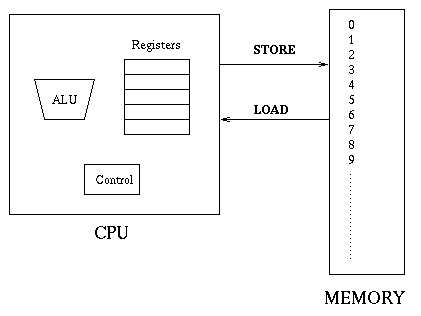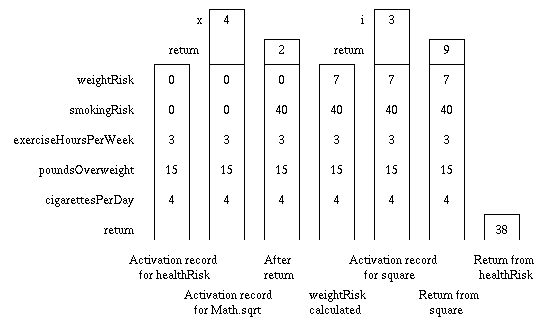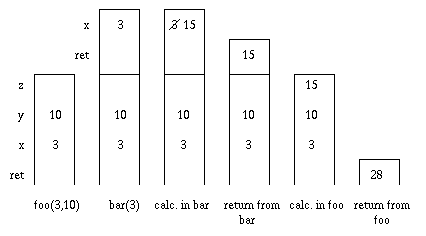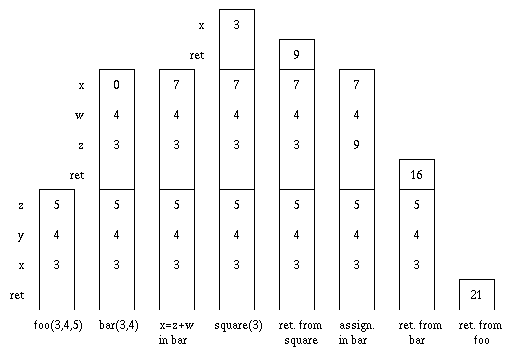Copyright © 1996-2005, Kenneth J. Goldman

The CPU has
+, <, etc.)
int healthRisk(int cigarettesPerDay, int poundsOverWeight,
int exerciseHoursPerWeek) {
int smokingRisk = 20 * Math.sqrt(cigarettesPerDay);
int weightRisk = poundsOverweight - 8;
return smokingRisk + weightRisk - square(exerciseHoursPerWeek);
}
int square(i) {
return i * i;
}
Let's look at the execution stack for the call
healthRisk(4, 15, 3).

Call by Value
Let's think about what's going on in the example we just did.
When a procedure is called, space is created on the stack for the
What happens to the calling procedure if we assign to a parameter within the called procedure? For example,
int foo(int x, int y) {
int z = bar(x);
return x + y + z;
}
int bar(int x) {
x = 5 * x;
if (x > 10)
return x;
else
return -x;
}
What is the return value from foo(3, 10)?

x to
foo is different from the parameter
x to bar.
x inside bar, the
x in foo is unaffected.
x in foo is unchanged -- the
parameter value is not copied back on return.
The value of the actual parameter is copied into the formal parameter and used locally.Call-by-value is the parameter passing mechanism used by Java. (Some languages, such as C++, permit call-by-reference, where the called procedure uses a variable provided by the calling procedure. With call-by-reference, changes to the value of the variable are visible to the calling procedure upon return.)
Let's do one more example:
int foo(int x, int y, int z) {
return z + bar(x, y);
}
int bar(int z, int w) {
int x = z + w;
z = square(z);
return x + z;
}
int square(int x) {
return x * x;
}
What is the return value of foo(3, 4, 5)?

Kennneth J. Goldman Last modified: Mon Jan 20 15:50:36 CST